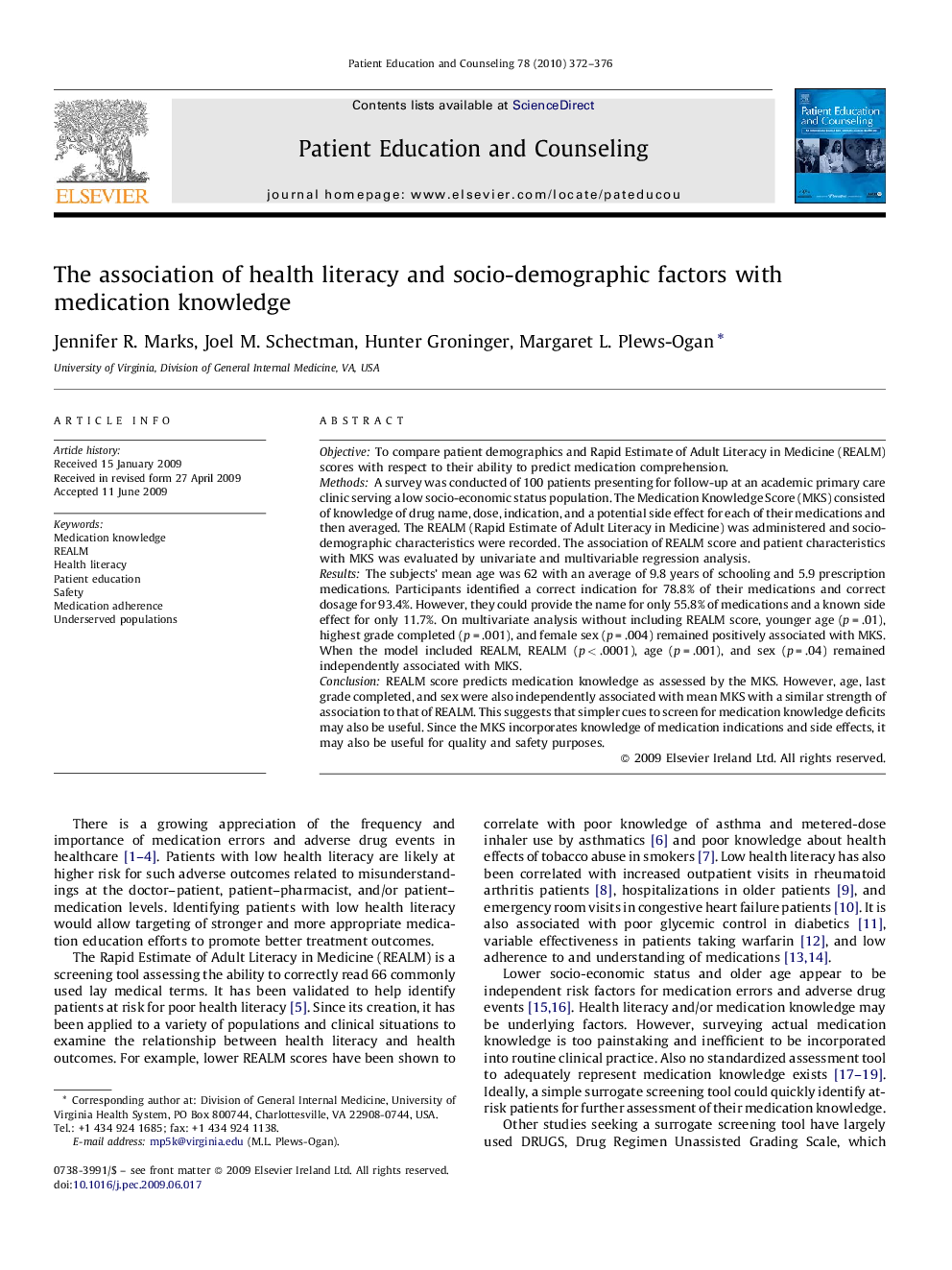| کد مقاله | کد نشریه | سال انتشار | مقاله انگلیسی | نسخه تمام متن |
|---|---|---|---|---|
| 3814990 | 1246049 | 2010 | 5 صفحه PDF | دانلود رایگان |

ObjectiveTo compare patient demographics and Rapid Estimate of Adult Literacy in Medicine (REALM) scores with respect to their ability to predict medication comprehension.MethodsA survey was conducted of 100 patients presenting for follow-up at an academic primary care clinic serving a low socio-economic status population. The Medication Knowledge Score (MKS) consisted of knowledge of drug name, dose, indication, and a potential side effect for each of their medications and then averaged. The REALM (Rapid Estimate of Adult Literacy in Medicine) was administered and socio-demographic characteristics were recorded. The association of REALM score and patient characteristics with MKS was evaluated by univariate and multivariable regression analysis.ResultsThe subjects’ mean age was 62 with an average of 9.8 years of schooling and 5.9 prescription medications. Participants identified a correct indication for 78.8% of their medications and correct dosage for 93.4%. However, they could provide the name for only 55.8% of medications and a known side effect for only 11.7%. On multivariate analysis without including REALM score, younger age (p = .01), highest grade completed (p = .001), and female sex (p = .004) remained positively associated with MKS. When the model included REALM, REALM (p < .0001), age (p = .001), and sex (p = .04) remained independently associated with MKS.ConclusionREALM score predicts medication knowledge as assessed by the MKS. However, age, last grade completed, and sex were also independently associated with mean MKS with a similar strength of association to that of REALM. This suggests that simpler cues to screen for medication knowledge deficits may also be useful. Since the MKS incorporates knowledge of medication indications and side effects, it may also be useful for quality and safety purposes.
Journal: Patient Education and Counseling - Volume 78, Issue 3, March 2010, Pages 372–376